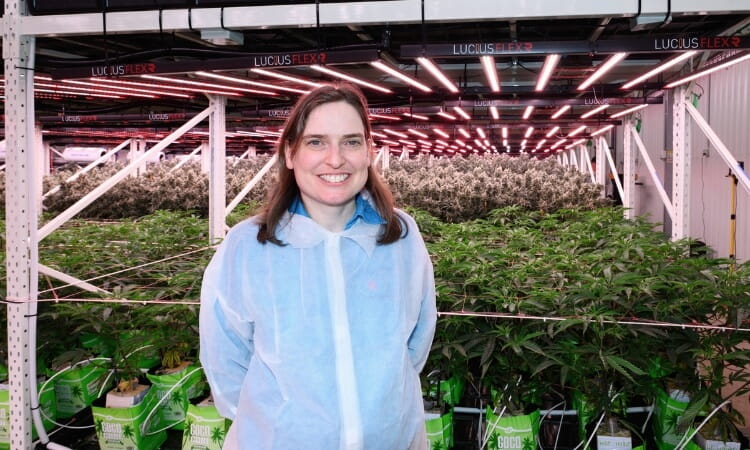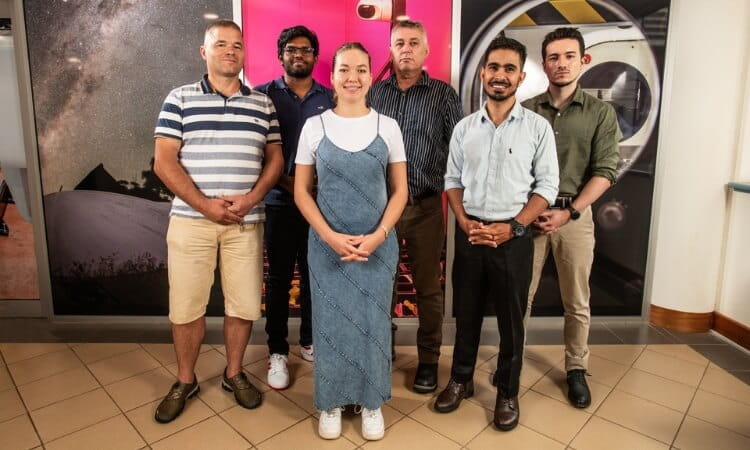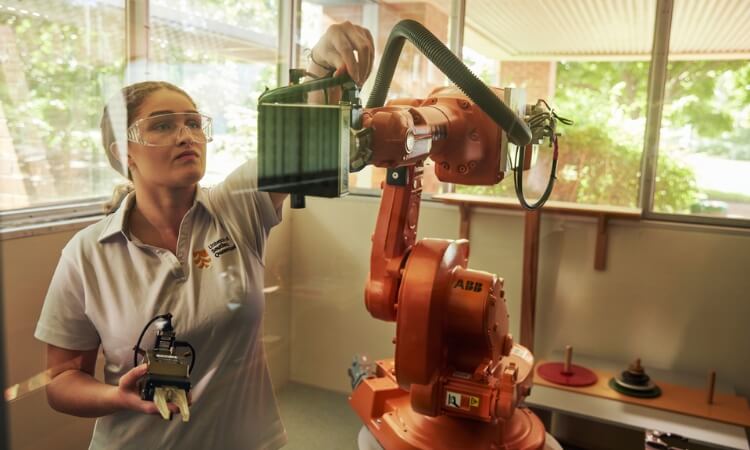At 15 years old, Emma Miles remembers the nights she would head out with her dad, telescope in hand, to gaze up at the stars.
Years later, she is still studying the night sky – having unlocked an international opportunity through a science degree and honours year at the University of Southern Queensland.
“In Year 11, I decided to do one of the UniSQ head start courses and it was here I met Dr Carolyn Brown, who would go on to become my honours supervisor and help me on my journey,” Ms Miles said.
“For my honours project I worked on the classification of terrestrial exoplanets. I used simulations and models, based on data found in the NASA exoplanet archive, to help categorize the planets based on atmosphere.
“A lot of research centres on Earth-like exoplanets, but I went a different route – instead looking at Venus-like exoplanets, which have distinctive atmospheres.
“It was challenging, because there isn’t a lot of information on these, but now, with the launch of NASA’s James Webb telescope, there will more data for future projects.”
Ms Miles’ honours thesis garnered considerable interest. The Bundamba local is now packing her bags for the US, as she embarks on a PhD fellowship at the University of California, Riverside.
“Getting first class honours opened a lot of doors for me – a week after finishing my project, Professor Stephen Kane from UC Riverside contacted me, offering a place on his team,” Ms Miles said.
“When I found out, I cried from excitement, but then realised I had a lot to do, as I have never really lived outside of Australia.
“My studies at UniSQ have been instrumental in this.
“UniSQ has a large group of exoplanetary researchers, and the physics and astronomy department are incredibly supportive and have done everything to help me reach my goals.”
Ms Miles said she was looking forward to advancing her knowledge on exoplanets.
“With this PhD, I will get to work on a multitude of projects with both UC Riverside and NASA,” she said.
“I want to continue to explore the atmospheres of terrestrial exoplanets, and there will be opportunities to work with data that hasn’t been released publicly.
“Another opportunity that might come out of this is getting to work on NASA’s DAVINCI mission, which is set to study Venus’s atmosphere in 2031 – it would be great to be part of that team.”
Learn more about the University of Southern Queensland Centre for Astrophysics.



